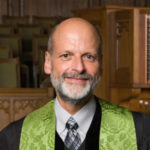 I invite you to take a few moments with me to reflect on today’s Upper Room Devotional below.
I invite you to take a few moments with me to reflect on today’s Upper Room Devotional below.
Thank you for sharing this early moment of your day with me, with God, and with the thoughts and words of this reading that I hope you will carry with you throughout the coming day and night.
Today’s Scripture:
Matthew 6:25-34 New Revised Standard Version (NRSV)
Do Not Worry
25 “Therefore I tell you, do not worry about your life, what you will eat or what you will drink,[a] or about your body, what you will wear. Is not life more than food, and the body more than clothing? 26 Look at the birds of the air; they neither sow nor reap nor gather into barns, and yet your heavenly Father feeds them. Are you not of more value than they? 27 And can any of you by worrying add a single hour to your span of life?[b] 28 And why do you worry about clothing? Consider the lilies of the field, how they grow; they neither toil nor spin, 29 yet I tell you, even Solomon in all his glory was not clothed like one of these. 30 But if God so clothes the grass of the field, which is alive today and tomorrow is thrown into the oven, will he not much more clothe you—you of little faith? 31 Therefore do not worry, saying, ‘What will we eat?’ or ‘What will we drink?’ or ‘What will we wear?’ 32 For it is the Gentiles who strive for all these things; and indeed your heavenly Father knows that you need all these things. 33 But strive first for the kingdom of God[c] and his[d] righteousness, and all these things will be given to you as well.
34 “So do not worry about tomorrow, for tomorrow will bring worries of its own. Today’s trouble is enough for today.
Tim’s Devotional Reflection for Today
It goes without saying that a lot of people are feeling a lot of anxiety right now. There are so many reasons to feel anxious—for yourself, your loved ones, for our community, our nation, and our world—and how we are going to get through this time.
It also goes without saying that anxiety is just a part of being human in normal times. So much of life is beyond our control and when the illusions of control are shattered, we become anxious. This is certainly such a time.
So, what does Jesus have to say about anxiety? “Don’t worry about your life.” (Matthew 6:25) Is that possible? It seems like he might as well say, “Don’t be human.” After all, psychologists tell us that anxiety is central to human existence. In fact, anxiety can lead us to growing where we need to grow, to changing where we need to change, and ultimately to greater maturity.
What, then, does Jesus mean? When we look at the Greek word translated “worry” here in the text, it connotes something more than just day-to-day worries. The Greek word used here, merimnáō, means “to worry” or “to be anxious.” It is used five times in this passage alone, all in a negative manner. The root of the word is another Greek verb, merízō, which means “to divide; to separate into parts; to cut into pieces; to divide into parties, i.e. be split into factions.” The anxiety Jesus is talking about is the kind of anxiety that cuts us to pieces, that is destructive of the trust and hope we have in our dependable, gracious God.
You could say that what Jesus is talking about is toxic worry.
Jesus asks a rhetorical question: “Who among you by worrying can add a single moment to your life?” That question is as timely today as when Jesus posed it 2,000 years ago. Does worrying do us any good? Someone has said, “Worry is like a rocking chair–it gives you something to do but it doesn’t get you anywhere.” Another old saying reminds us that “Worry often gives a small thing a big shadow.”
Does worrying do us any good? In all that worrying, have we, as Jesus asked, added even a single moment to our lives? No. In fact, some studies suggest that worrying shortens our lives.
Novelist Arthur Somers Roche wrote many years ago, “Worry is a thin stream of fear trickling through the mind. If encouraged, it cuts a channel into which all other thoughts are drained.”
So, how do we live? How do we let go of worry? Here are a few ideas to think about:
Love yourself. Be compassionate to yourself.
In Matthew 22, Jesus gives the Great Commandment, quoting Deuteronomy 6:5 in the Hebrew Scriptures: “Love the Lord your God with all your heart and with all your soul and with all your mind.” He said, “This is the first and greatest commandment.” And then he gives the second commandment, quoting Leviticus 19:18: “Love your neighbor as yourself.” [Matthew 22:37-39, Deut. 6:5, and Lev. 19:18] The commandment to love one’s neighbor as oneself implies that we are to love ourselves and to be compassionate to ourselves.
Recognize that God has given us what we need. Jesus said, “Look at the birds in the sky. They don’t sow seed or harvest grain or gather crops into barns. Yet your heavenly Father feeds them. Aren’t you worth much more than they are? … Notice how the lilies in the field grow. They don’t wear themselves out with work, and they don’t spin cloth. But I say to you that even Solomon in all of his splendor wasn’t dressed like one of these. If God dresses grass in the field so beautifully, even though it’s alive today and tomorrow it’s thrown into the furnace, won’t God do much more for you, you people of weak faith?”
Not only are our imaginations wired for anxiety, we’re also capable of imagining something new, of being adaptable in the face of change, and of getting through very difficult times. Just as God has gifted the birds of the air and the lilies of the field in particular ways, so God has gifted humanity in particular ways.
Trust that when the point of emergency actually arrives, you’ll be able to meet it, and then when the world changes, you’ll be able to adapt to it.
Be Present. Live in the present moment. Live one day at a time.
Jesus said, “So do not worry about tomorrow, for tomorrow will bring worries of its own. Today’s trouble is enough for today.”
That sounds somewhat negative. “Each day has enough trouble of its own.” But it is good advice. You and I aren’t God. We don’t know the future. We may be worrying about something that will never happen. We may be worrying about something that will resolve itself. We need to focus on today.
George MacDonald expressed this thought with great clarity: “No one ever sank under the burden of the day. It is when tomorrow’s burden is added to the burden of today that the weight is more than one can bear.”
In addition, today is the day to do something about our worries, if that is possible. Make a plan to deal with the situation causing the worry today and deal with it today, if possible.
Peter Marshall once prayed, “Help us to do our very best this day and be content with today’s troubles so that we shall not borrow the troubles of tomorrow. Save us from the sin of worrying, lest stomach ulcers be the badge of our lack of faith.”
Pray.
The psychiatrist, Dr. Edward Hallowell, writing about worry a few years ago for Psychology Today magazine, offered several suggestions for dealing with excessive worry, but finally he said this: “Talk to God when you feel worried…. Brain scans and EEG monitors show beneficial changes in the brain during meditation and prayer. The changes correlate with most of our measures of improved health, including longevity and reduced incidence of illness.” Hallowell calls himself a “practicing Christian” and said that he often advised patients to develop a spiritual life because spirituality is a “very powerful part of the mind.” He concluded, “In my case, a relationship with God is another source of connection. And ultimately, it makes sense of my life in ways that nothing else can.” [Hallowell, Edward H. “Fighting life’s ‘What ifs.’” Psychology Today, November-December 1997 and “Weaving a web of life: A talk with Edward Hallowell, M.D.” Psychology Today, November-December 1997]
That is why the Apostle Paul could write to the Philippians, “Do not worry about anything, but in everything by prayer and supplication with thanksgiving let your requests be made known to God. And the peace of God, which surpasses all understanding, will guard your hearts and your minds in Christ Jesus.” [Philippians 4:6-7]
George Matheson, a well-known blind clergyperson in Scotland in the 1800’s, wrote the hymn, “O Love That Wilt Not Let Me Go” at a difficult period of his life. He had much to worry about. He had every reason to allow worry, the thin stream of fear, to cut a channel into his mind that would drain all the other thoughts. But, he didn’t. Instead, he penned these words:
O Love that wilt not let me go,
I rest my weary soul in thee;
I give thee back the life I owe,
that in thine ocean depths
its flow may richer, fuller be.
There is a lot of theology woven in to hymns. To enhance today’s reading, I recommend listening to “O Love That Will Not Let Me Go” by George Matheson (1882). I hope you will take a few moments to let the words of this message and the emotion that always connects us to music connect with your soul. Listen to this hymn on SoundCloud.
Thank you for sharing this early moment of your day with me, with God, and with the words and music that I hope you will carry with you throughout the coming day and night.
I am so grateful for you, for our church, and for the Love that will see us all through this very difficult time. Please stay safe and well and we’ll be together again in spirit tomorrow morning!
Grace and Peace,
![]()
Dr. Tim Bruster
Senior Pastor
Here’s more about this passage of scripture via Upper Room devotionals:
HOPE OF NEW LIFE
God can make everything new in my life.

